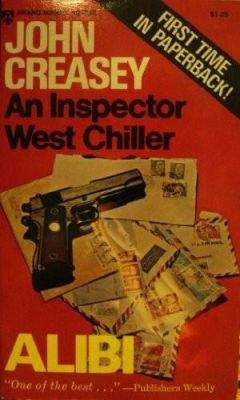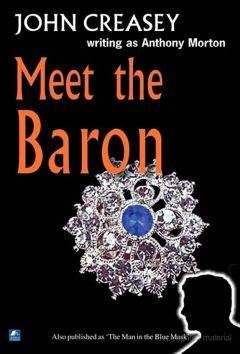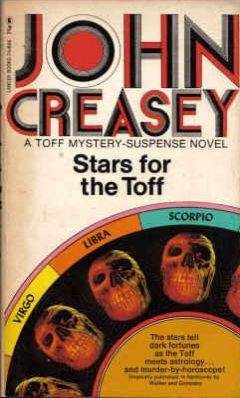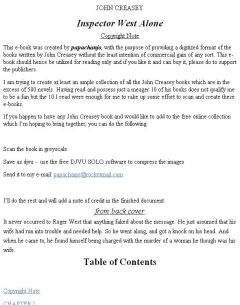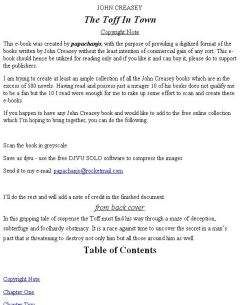John Creasey - Gideon’s Sport
На сайте mybooks.club вы можете бесплатно читать книги онлайн без регистрации, включая John Creasey - Gideon’s Sport. Жанр: Прочее издательство неизвестно,. Доступна полная версия книги с кратким содержанием для предварительного ознакомления, аннотацией (предисловием), рецензиями от других читателей и их экспертным мнением.
Кроме того, на сайте mybooks.club вы найдете множество новинок, которые стоит прочитать.
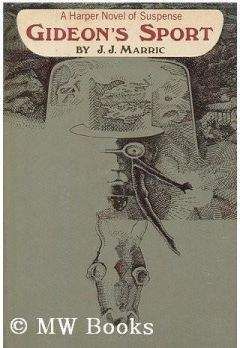
John Creasey - Gideon’s Sport краткое содержание
Gideon’s Sport читать онлайн бесплатно
He pulled up outside his offices, and a doorman came hurrying. A few minutes later, he had disappeared into the building, the doorman was putting his car away, and Sydney Sidey was walking off, glowering straight ahead at the massed crowds.
“Mean old flicker!” he muttered. “He’ll put plenty on-just won’t pay me, that’s all. I wonder who else would pay for the info? Old Filby won’t; he’s in Smith’s pocket-he’s no good. I wonder if Jackie Spratt’s —” He continued to wonder about Jackie Spratt’s.
The three Spratt brothers were at their daily conference, in the Board Room at the top of their building. John was sitting back, smoking a pipe, looking as solid and dependable as a man could. In Mark’s hand was something rather like a small cigar fitted into an amber-coloured mouthpiece, and on the table in front of him was what appeared to be an amber case holding six of the ‘cigars’: an affectation well in keeping with the dapper little man’s appearance.
He put one to his lips, and pressed a point close to the mouthpiece. A tiny sound followed, and a little spray appeared on the wall opposite him, at least twenty feet away. He laughed.
“Ill bet no one else ever thought of doping a horse from a distance!” he crowed. “One of these in a hay-box, and we’ll have no problems!”
“I still don’t quite see how it works,” objected Matthew.
“You will,” John said, bluffly. “The dope is in a dart-capsule, see? And the capsule breaks on contact with the hay-the slightest touch does it. The dope itself is one of these curare off-shoots: Curol, they call it. Can’t hurt the horses-just relaxes the muscles so they can’t make a hundred per cent effort. It’s a liquid, so it soaks into the hay — stays effective for two or three days — “
“So it can be traced!” Matthew interrupted, sharply.
“If it were in the box at the time of the race, yes,” John agreed. “But the horses will be doped several days before. I’ve two feed salesmen fixed to do the job. They’ll be able to get near enough to blow the dope into the hay-boxes — they won’t have to get near enough to be suspicious. And it’s not a normal dope, either. The stewards could run every test in the book and still never get round to Curol. There’s maybe a chance in a thousand of its being discovered, and even then, it wouldn’t involve us. It might involve two gentlemen from the United States, mind you.” He grinned at his brothers. “So it isn’t foolproof! Show me a bet which will win this kind of money which hasn’t got some sort of risk. We live on risks!”
“I must say I don’t think the risk is very great,” Mark put in, amiably.
“I suppose it’s all right.” Matthew was grudging. “How much have we got on Road Runner?”
“Nearly half a million,” John Spratt replied. “At fives.”
“Bring it up to the level million?” suggested Mark.
Matthew shrugged.
“All right,” said John.
“Can’t we get sixes?” asked Matthew.
“Fives are bloody good!” John told him, going over to the wall to examine the spot where the liquid had struck. “It’s drying already,” he remarked.
“Don’t get too near,” warned Matthew, jocularly. “We don’t want you slowed down!”
And they all laughed.
Mark and Matthew knew that Blake had been killed to ensure that their secret would not be disclosed. They seldom talked about that, however, even among themselves, except by an occasional oblique reference. Until this moment, nothing had been said, today; but now there was a pause and the other two looked at John. He was frowning, the groove between his brows even deeper than usual.
“Is everything all right?” Mark asked, with almost feminine insistence.
“Sure,” John growled. “And what isn’t can soon be put right.” There was another, almost awkward silence, before Matthew, the least imaginative of the trio, forced the issue:
“What isn’t, brother?”
“Our Colonel Hood and Thomas Moffat,” John elucidated. “They are the only two who could have given anything away. That’s almost certainly where Charlie Blake got his facts, all right, so I’ve had them checked. And they’re being watched!”
“Who by?” asked Matthew, in sudden alarm.
“Police,” answered John, completely unperturbed. “So they’ll have to have a little change of plans.” He gave a comfortable sounding laugh, and went on: “There’s another thing we ought to think about. Archie Smith and that beanpole who works for him were at Wimbledon today, watching one of the players — an American negro, named Rudge: Barnaby Rudge. And we know this fellow Willison — Rudge’s sponsor — is trying to put a lot of money on him to win.” He flashed the dazzling white smile which was such a part of his spectacular good looks: “He can’t place it. I think we ought to take it.”
“Why?” demanded Mark Spratt “Are we sure this Rudge isn’t a dark horse?”
“We’ve got too much on Bob Lavis,” John told him. “We’ve been putting money on him for a long time — we can’t afford to let anyone else win. I’m going to have a little talk with Sidey.”
Neither of the others demurred.
“Jackie Spratt’s,” Sydney Sidey was deciding. “They’re the only firm who might cough up. Now I wonder — which of the brothers ought I to talk to?”
CHAPTER THIRTEEN
‘Proper Devils’
Gideon reached the Yard a little after five o’clock, in a very dour mood. There was the underlying factor of Kate and there was this shocking attack on the Jamaican girl; quite suddenly, everything else seemed to become unimportant. This was dangerous thinking; he must discipline himself.
He sensed a difference at the Yard, among the policemen on duty outside, the Flying Squad men and other detectives getting in and out of their cars. It was reflected in a kind of tension: a grimness in manner, appearance, even movement. None of them laughed; none of them even smiled; it was as if these men, all big and tough and hardened to crime and violence, had received a great shock.
And of course they had.
This kind of mood spread throughout the Yard whenever a policeman was injured. It was difficult to explain, even to describe; but Gideon had a very strong sense of it as he went in and up the steps. The doorman, usually content to say: “Good-morning”, or “Good-night, sir” ventured: “Shocking thing at Hampstead, sir? Proper devils, these youngsters, these days.”
The hall constable was perhaps forty-five: not so long ago himself a ‘youngster’.
Gideon said: “Yes. Ugly,” and went on. But the remark had set his thoughts off on a new tack and when he went into his office, he was thinking: The swine who did that, was no hotheaded youngster-he really was a devil. But you didn’t brand the whole generation ‘proper devils’ because there were a few who were truly evil.
How would the newspapers play this up? Perhaps he should have handled the Press himself. He sat down — and the telephone rang as if operated by the chair.
“Yes,” he said gruffly.
“I’ve got Mrs. Gideon for you at last, sir.”
“Oh.” His thoughts veered again: he had a sharp little stab of fear, and all else vanished from his mind. “Put her through. After a pause, he spoke a little over-heartily: “Hallo, Kate! I’ve been trying to get you.”
“I know — I’ve been out,” Kate said, vaguely; and usually she was precise. There was a pause, almost an awkward silence. Then they both spoke at once:
“Why did you want — ?”
“I’d hoped to be early, but —”
They both broke off and then, spontaneously, they both laughed. The fact that Kate could laugh so freely persuaded Gideon that she had no great anxiety, and he felt a great sense of relief.
“But something cropped up,” she filled in for him, lightly.
“How on earth did you guess? But I will be in to dinner — seven-thirty at the latest,” he promised. “Is Penny back yet?”
“She dashed in and dashed out,” Kate said. “Half-past seven then, dear.”
“Yes, fine. ‘Bye.” Gideon rang off, reflected how calm and composed she had sounded, then caught sight of a note pinned to the Outdoor Events, June, file. He pulled this towards him and read: “C.I. Bligh would like to see you. I said provisionally five-thirty. A.H.” Gideon glanced at his watch; it was nearly ten minutes past five. He rang for Hobbs but there was no reply. He called Information and asked if there was any news from AB.
“Nothing new, sir. They haven’t got the devil, yet.’’
Devil. Young devils, Gideon grunted and rang off. He drummed his fingers on the desk, with an undertone of anger and resentment, and was still drumming when his telephone rang again. He grabbed it.
“Gideon.”
“The Press Officer would like a word with you, sir,” said the operator.
“Put him through.” The Press Officer, colloquially known as the Back Room Inspector, had an office with a door opening on the Embankment. There were always a few Fleet Street men hovering there in the hope of a sudden sensation and at times when big news was breaking, such as this, there might be two or three dozen,
“Commander?” Gideon recognised the Welsh voice of Huw Jones, the Inspector on rota at the Back Room.
“Yes, Will?”
“I’m sorry to worry you, Mr. Gideon, but the boys would like to know if you have any special message for them.” Every end of sentence and end of phrase went upwards in what sounded like a Welsh lilt but which could also suggest a Pakistani or an Indian from the northern provinces. “About this poor girl whose face was slashed, they mean.”
“Haven’t they talked to Mr. Henry?”
“Yes, indeed they have-but they would like a message from you.”
Gideon hesitated, looked at the unopened files on his desk, and said: “I’ll come down in five minutes, for five minutes.” He rang off on the Welshman’s obvious delight, pulled the files towards him and opened them to glance at the latest note in each.
In the Body in the Thames Case was the note: “Departure time Lemaitre’s plane delayed. New E.T.A. London Airport 12.30 p.m. tomorrow.” On the Madderton Bank Case: “The Chairman of Directors telephoned you twice.” There was another note: “Chipper Lee has been picked up and questioned, Knowles is now in charge.” Knowles would know what to do. He rang for Hobbs again and again there was no answer, which was unusual: Hobbs normally left a message if he were going to be out for long. He rang Information.
“What’s the latest on Detective-Constable Conception?”
“A message has just come in, sir,The cheek injury is superficial. The lip injuries are serious and seven stitches have been inserted.”
So she wasn’t likely to be able to talk for some time. Poor kid. She wasn’t much older than Penny!
“Anything else the matter with her?”
There was a pause, before the answer came: “Only shock, sir.”
Only shock! Gideon rang off with a grunt and strode out of his office and off down to the Back Room. When he opened the door, after the near-silence of the long corridors, it was like stepping into a particularly crowded bedlam. At least thirty men and women, the women heavily outnumbered, were crammed together in a room not really large enough for half as many.
Tall, dark and thin-faced, with rather heavy-lidded but unexpectedly bright blue eyes, Huw Jones was the only one present with any real elbow-room. He sprang up from behind his desk in a corner as one of the reporters held the door open while Gideon squeezed through.
Silence fell, strange and sudden. Gideon broke it, by saying: “I’ve just five minutes, I’m afraid that will have to suffice. A brief statement, first: Detective-Constable Conception is suffering from shock and is not yet able to make a statement. I do not know when she will be able to. The murdered man was Kenneth Noble, one of an Action Committee believed to be planning some kind of demonstration against the South African touring team at Lords during the Second Test. We want to interview another member of the Committee: Roy Roche — R-O-C-H-E — whom we believe may be able to help us with our inquiries in connection with the murder. A general call for him has gone out.”
He stopped, without warning, but a man was ready with a question.
“Do you think Roche was violent because he felt the police officer had betrayed the cause, Commander?”
“If you’re asking me whether I personally believe that the discovery that a trusted ally of a Peace Group had been a spy would turn an ordinary man into a killer — no,” Gideon stated flatly. “I have simply told you the bare facts.”
“Do you think there could be any other motive?”
“Obviously there could be. I don’t yet know what the motive was — nor who committed the crime.”
“Did you personally know that the policewoman was on this assignment, Commander?” This came from a little gingery woman with sharp, rather feline-looking green eyes.
“Yes..” Gideon stated flatly.
“Do you think it’s fair to use agents provocateurs, in — ?” began a thin-lipped, pallid-faced man.
“Nonsense,” Gideon said bluntly. “Detective-Constable Conception was not an agent provocateur. She was doing a difficult and dangerous job extremely well.”
“Was the raid on this so-called Action Committee due to her investigations?” another man asked.
“No. She was reported missing. Chief Superintendent Henry took very prompt and very effective action. We knew we were dealing with a group of extremists who under pressure might cause serious disturbances. We did not know that one of them might be an incipient murderer. We don’t know — as has already been made clear — whether the murder was a result of the Action Committee’s plans or whether the Action Committee was used as a cover. When we find the man we wish to interview — “
“Any news of him, sir?” a man interrupted.
“No. I really — “
“Do you think the Action Committee will call off its campaign, Commander?”
“I don’t know. Obviously, I hope they’ll be shocked into seeing sense and so changing their minds.”
“Don’t you think they believe they’re the ones who do see sense?” asked the thin-lipped man. “Haven’t they every right—?”
“Don’t expect me to get into political arguments,” Gideon interrupted with a kind of bluff good humour. “I don’t think any man, ever, has the right to cause, incite or commit crimes of violence of any kind. And now I really must go.”
“Commander —”
“Mr. Gideon!”
“Commander, one more question!” a big man squeezed into a corner boomed out, above all the others. “Will the police make the same kind of effort over the attack on a coloured police-officer as they would if she were white?”
The booming voice fell silent, and over the room there fell a hush. The man with the thin lips seemed to be sneering, as if saying: “Now answer that, you smug so-and-so!”
Gideon looked at the questioner, pursed his lips and answered: “Exactly the same. Possibly a little more, if that were possible.”
“Because she’s coloured!” spat the tight-lipped man. “That’s inverted prejudice, and you know it!”
Похожие книги на "Gideon’s Sport", John Creasey
John Creasey читать все книги автора по порядку
John Creasey - все книги автора в одном месте читать по порядку полные версии на сайте онлайн библиотеки mybooks.club.
